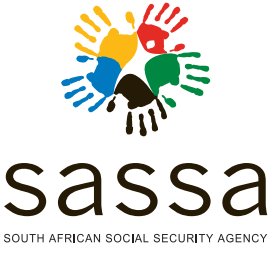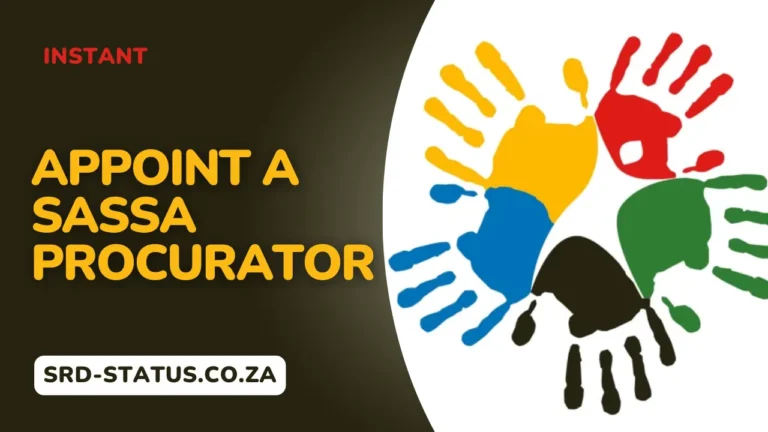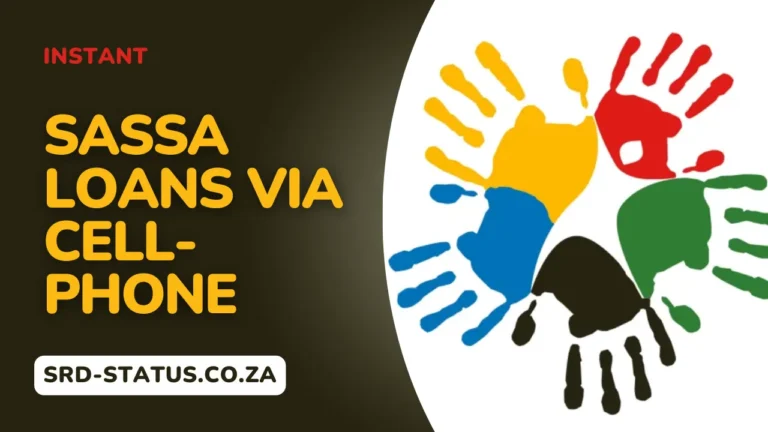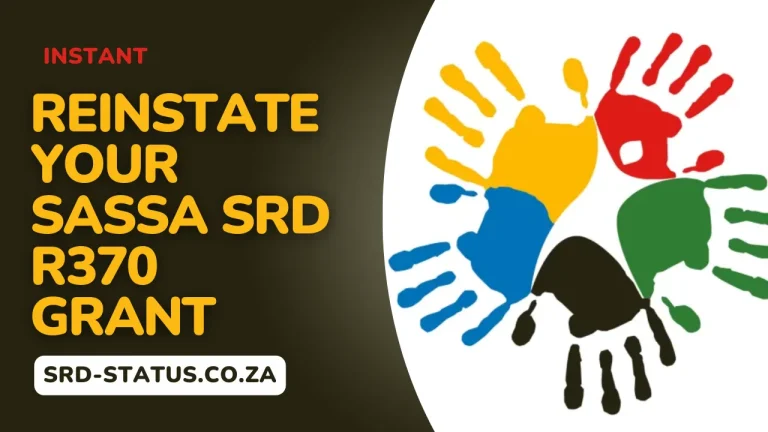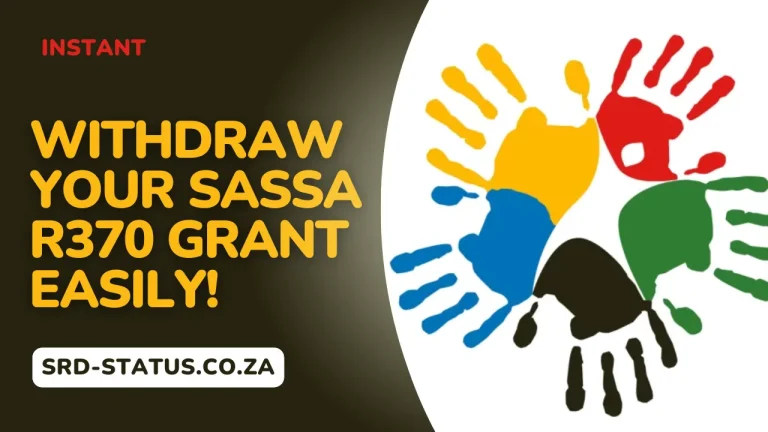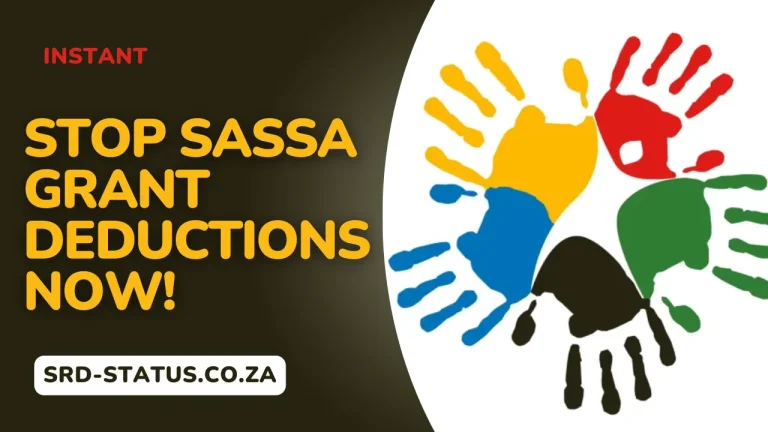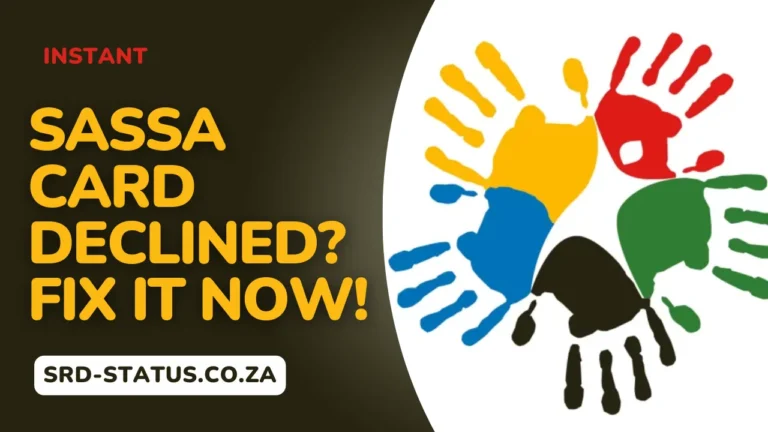What Does “SASSA SRD First Batch for R370” Mean in 2025?
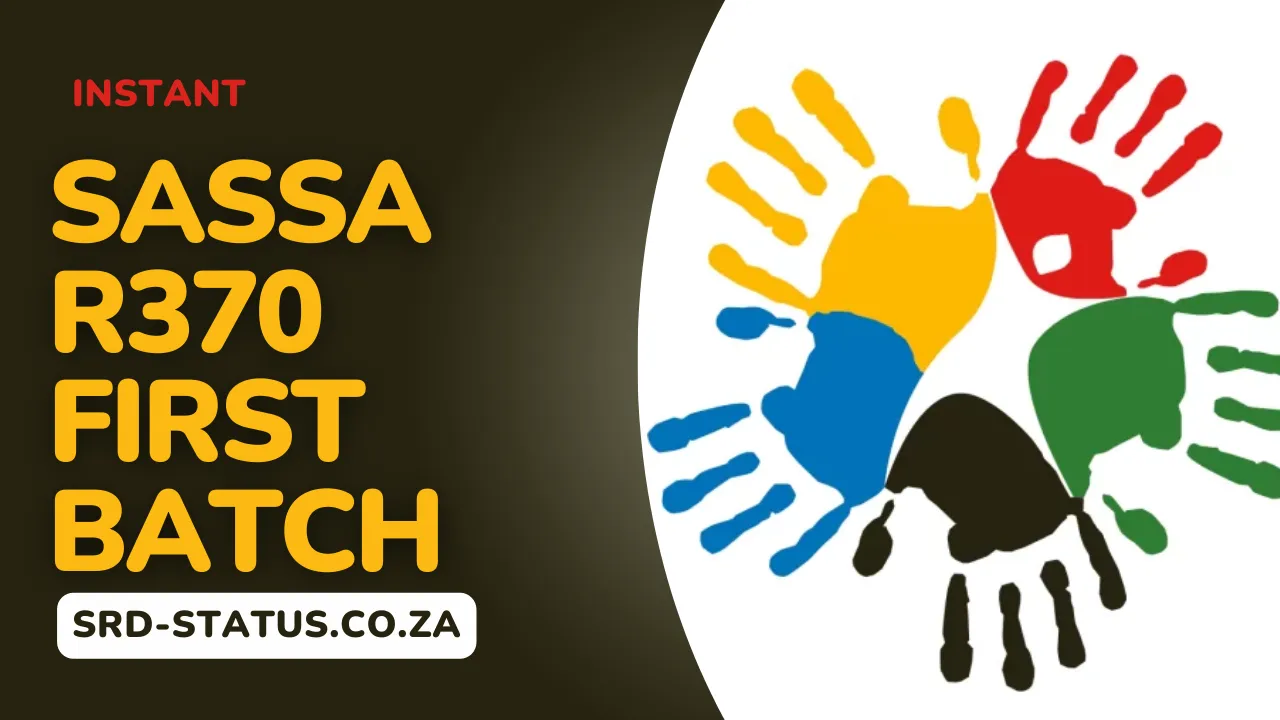
If you’re waiting for your R370 Social Relief of Distress (SRD) grant from the South African Social Security Agency (SASSA), you might have heard about payments being processed in “batches.” Terms like “SASSA first batch” can feel confusing, especially when you’re eager to know when your money will arrive.
As someone who’s navigated government processes myself, I understand the frustration of unclear timelines and the relief of finally seeing that payment hit your account.
This guide explains what the SASSA SRD first batch means, how it affects your R370 grant payment in 2025, and what you can do to stay on top of the process. My goal is to make this as clear and practical as possible, so you know exactly what to expect.
What Does “SASSA SRD First Batch for R370” Mean in 2025? (Quick Answer)
The “SASSA SRD first batch for R370” refers to the earliest group of approved beneficiaries who receive their Social Relief of Distress grant payments each month. In 2025, payments typically begin around April 25 and continue through April 30, depending on your approval status and banking details. For example, April 2025 payments for the first batch are expected to start on April 25. Check your status on the official SASSA SRD portal to confirm your payment date.
Understanding the SASSA SRD First Batch
What Is the First Batch?
The “SASSA SRD first batch” is the initial group of beneficiaries who receive their R370 grant payments for a given month. SASSA processes millions of applications, so payments are rolled out in phases rather than all at once. The first batch typically includes those whose applications were approved early and have verified banking details.
For 2025, payments for the first batch are expected to start around the 25th of each month, with April 2025 payments beginning on April 25 and continuing until April 30, based on recent schedules. Subsequent batches follow over the next few days, wrapping up by the end of the month.
Why Does SASSA Use Batches?
SASSA handles over 8 million SRD grant recipients, and processing this volume requires a staggered approach. Here’s why batches make sense:
- Verification Needs Time: SASSA checks eligibility monthly, cross-referencing details with databases like the Department of Home Affairs to ensure accuracy.
- Banking Logistics: Different banks process deposits at varying speeds, and batching helps avoid overwhelming the system.
- Error Reduction: Spreading payments out minimizes mistakes, like funds going to incorrect accounts.
This system isn’t perfect—waiting can be stressful—but it’s designed to keep things manageable.
Who Gets Paid in the First Batch?
Not everyone lands in the first batch. SASSA prioritizes based on a few key factors:
Approval Status
Your application must be fully verified and marked “Approved” to qualify. If SASSA is still checking your details (e.g., income threshold of R624 or less per month), you might fall into a later batch.
Complete Banking Details
Beneficiaries with accurate bank account information or verified CashSend options (collectible at stores like Pick n Pay or Shoprite) are often paid first. Mistakes in your account number or unverified details can push you to a later batch.
Application Timing
If you applied or reapplied early in the cycle, you’re more likely to be in the first group. Late approvals often mean waiting for a subsequent batch.
Pro Tip: Always double-check your banking details on the SASSA portal to avoid delays. I once missed a payment because of a single incorrect digit—it’s an easy fix that saves headaches.
How to Check If You’re in the First Batch
Knowing whether you’re in the first batch is straightforward if you use the right tools. Here’s how:
Step 1: Visit the Official SASSA SRD Portal
Go to srd.sassa.gov.za and navigate to the “Status Check” section. This is the most reliable way to get real-time updates.
Step 2: Enter Your Details
You’ll need:
- Your 13-digit South African ID number.
- The phone number you used when applying.
Make sure these match your application exactly—mismatches can cause errors.
Step 3: Monitor Your Bank Account
If approved, payments typically appear within 2-3 days after processing. For CashSend users, check for an SMS with collection details.
Step 4: Use Alternative Methods
If you don’t have internet access:
- WhatsApp: Send “Status” to 082 046 8553 and follow the prompts.
- USSD Code: Dial 1203210# or 1347737# from your registered phone.
- SASSA Helpline: Call 0800 60 10 11, but expect longer wait times.
I’ve found the online portal to be the fastest and least stressful option, especially if you check after the 20th of the month when updates roll out.
What If You Miss the First Batch?
Missing the first batch doesn’t mean you’re out of luck—it just means a slight delay. Here’s what to do:
Verify Your Application
Log into the SASSA portal to see if your status is “Pending” or “Declined.” Pending means SASSA is still verifying; Declined might require an appeal if you think it’s an error.
Update Banking Details
Incorrect or missing bank details are a common culprit. Update them at srd.sassa.gov.za under “Change Banking Details.”
Stay Patient
Later batches often clear by the month’s end. For April 2025, expect all payments to finalize by April 30.
Contact SASSA
If you’ve waited past the expected window, reach out via:
- Email: [email protected]
- Phone: 0800 60 10 11
- Local Office: Visit in person with your ID for hands-on help.
Patience is key, but persistence pays off if something’s gone wrong.
Common Issues and How to Fix Them
Even with a solid system, hiccups happen. Here are frequent problems and solutions:
Pending Status
Cause: SASSA is verifying your eligibility (e.g., checking for other income sources like UIF).
Fix: Check your status weekly and ensure your details match Home Affairs records.
Incorrect Banking Details
Cause: Typos or outdated account info.
Fix: Update your details on the SASSA portal immediately.
Declined Application
Cause: You might exceed the R624 income threshold, receive another grant, or have verification issues.
Fix: File an appeal at srd.sassa.gov.za within 30 days, providing accurate info.
Missed Payments
Cause: Unclaimed funds or system errors.
Fix: Contact SASSA to confirm eligibility for back payments, which can sometimes be reissued.
In my experience, most issues stem from small oversights like outdated phone numbers. A quick check can save you weeks of waiting.
Tips for a Smooth Payment Process
To maximize your chances of landing in the first batch and avoiding delays:
- Keep Details Updated: Ensure your ID, phone number, and banking info are current on the SASSA portal.
- Use Official Channels: Stick to srd.sassa.gov.za or verified SASSA contacts to avoid scams.
- Check Regularly: Monitor your status after the 20th of each month for updates.
- Save SMS Alerts: Payment notifications often include key details for CashSend collections.
- Plan Ahead: Budget assuming payments might arrive late in the cycle to avoid financial strain.
These habits have helped me stay stress-free when dealing with government payments, and they’ll work for you too.
Frequently Asked Questions
What does “SASSA first batch” mean?
It’s the first group of approved SRD grant beneficiaries paid each month, typically starting around the 25th (e.g., April 25, 2025, for April).
How do I know if I’m in the first batch?
Check your status at srd.sassa.gov.za. If it says “Approved” with a payment date, you’re likely included.
Why wasn’t I paid in the first batch?
Your application might still be under review, or your banking details could be incorrect. Verify both on the SASSA portal.
How long do payments take to reflect?
Bank deposits usually take 2-3 days; CashSend payments are instant once processed, but you’ll need the SMS code.
What if my payment is delayed?
Double-check your status, update any errors, and contact SASSA at 0800 60 10 11 if the issue persists.

I’m a South African social development writer and grant education advocate with over 5 years of hands-on experience helping citizens understand and access SASSA services. I specializes in breaking down complex government processes into easy-to-read guides that empower low-income families, unemployed youth, and senior citizens.
As a community outreach volunteer and former SASSA liaison assistant, I have personally helped over 3,000 individuals apply for and manage their SRD grants, Child Support Grants, and Disability Grants.
